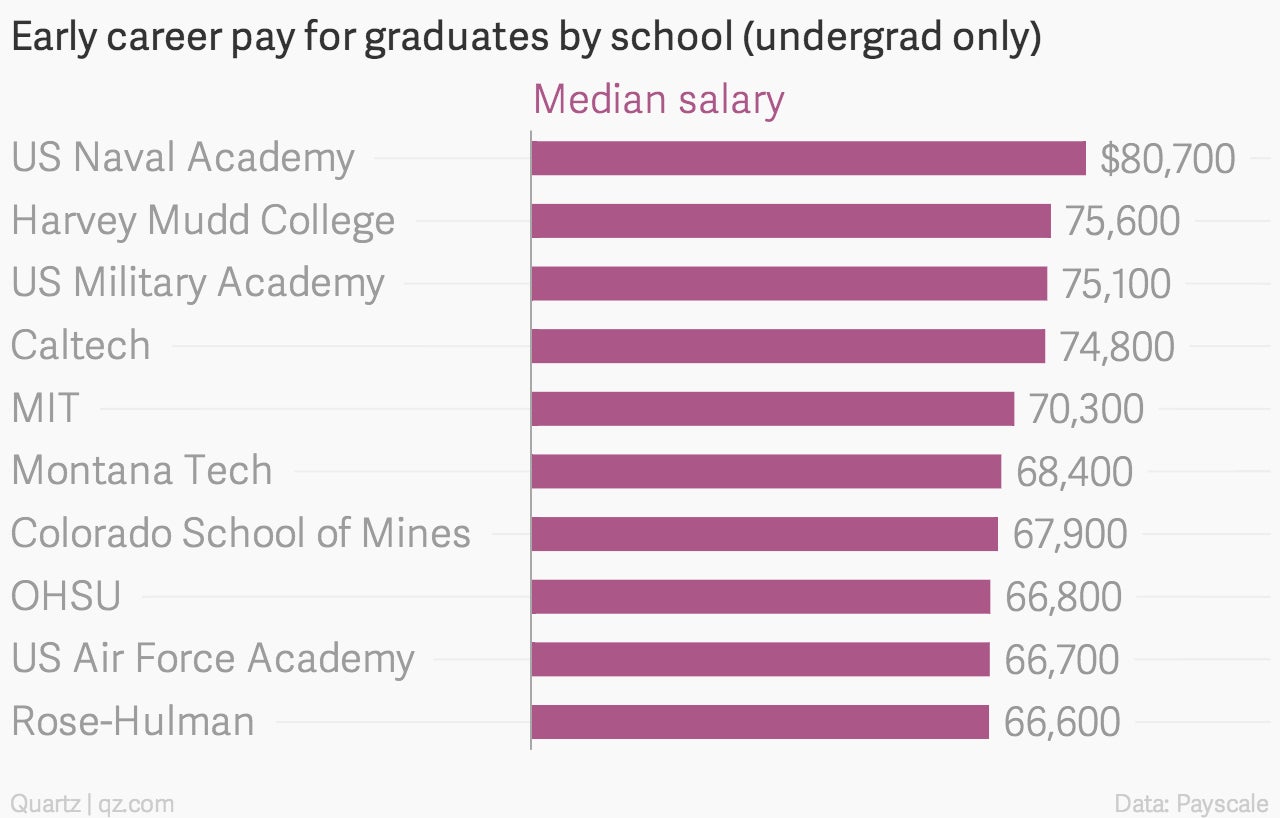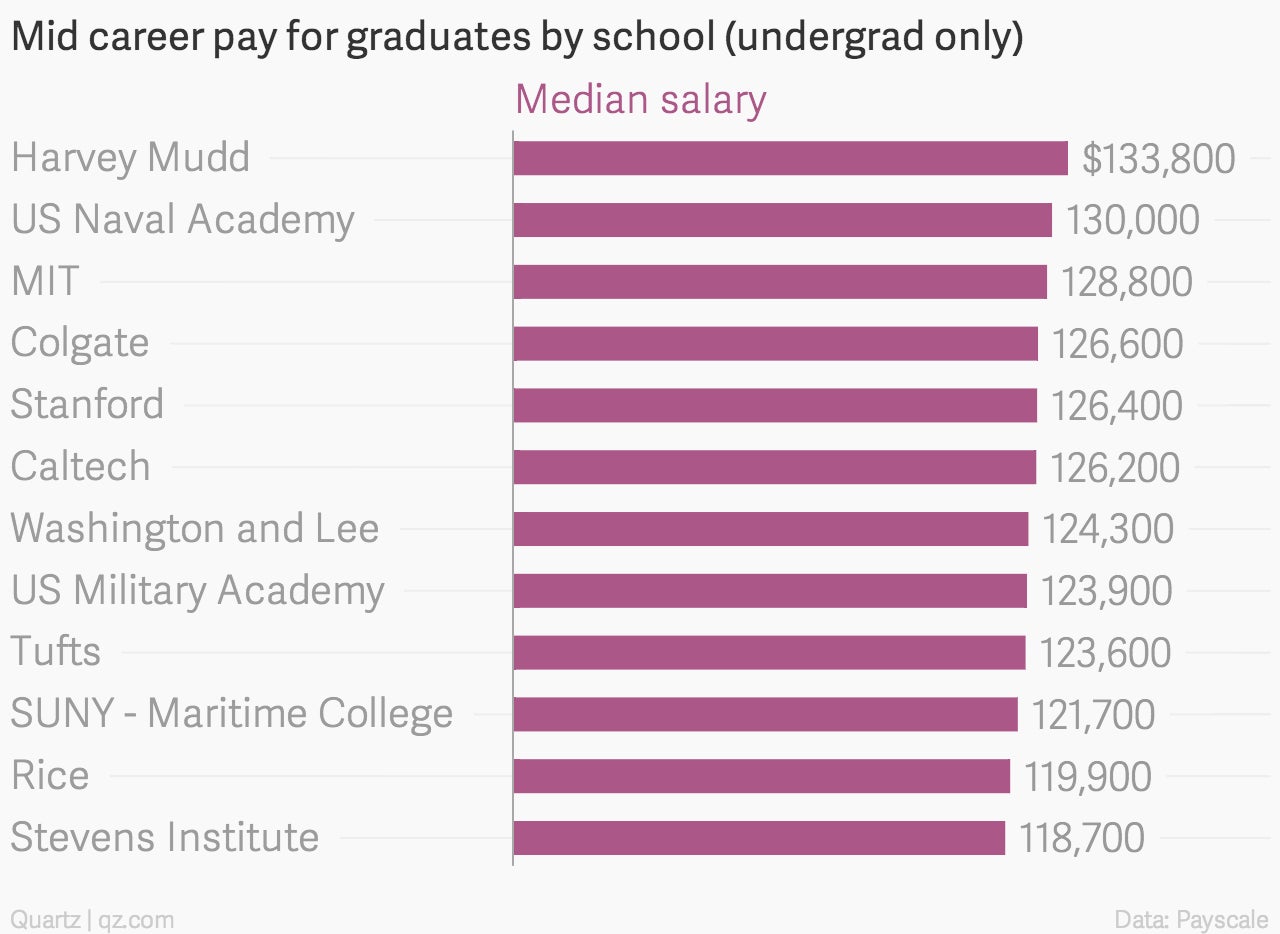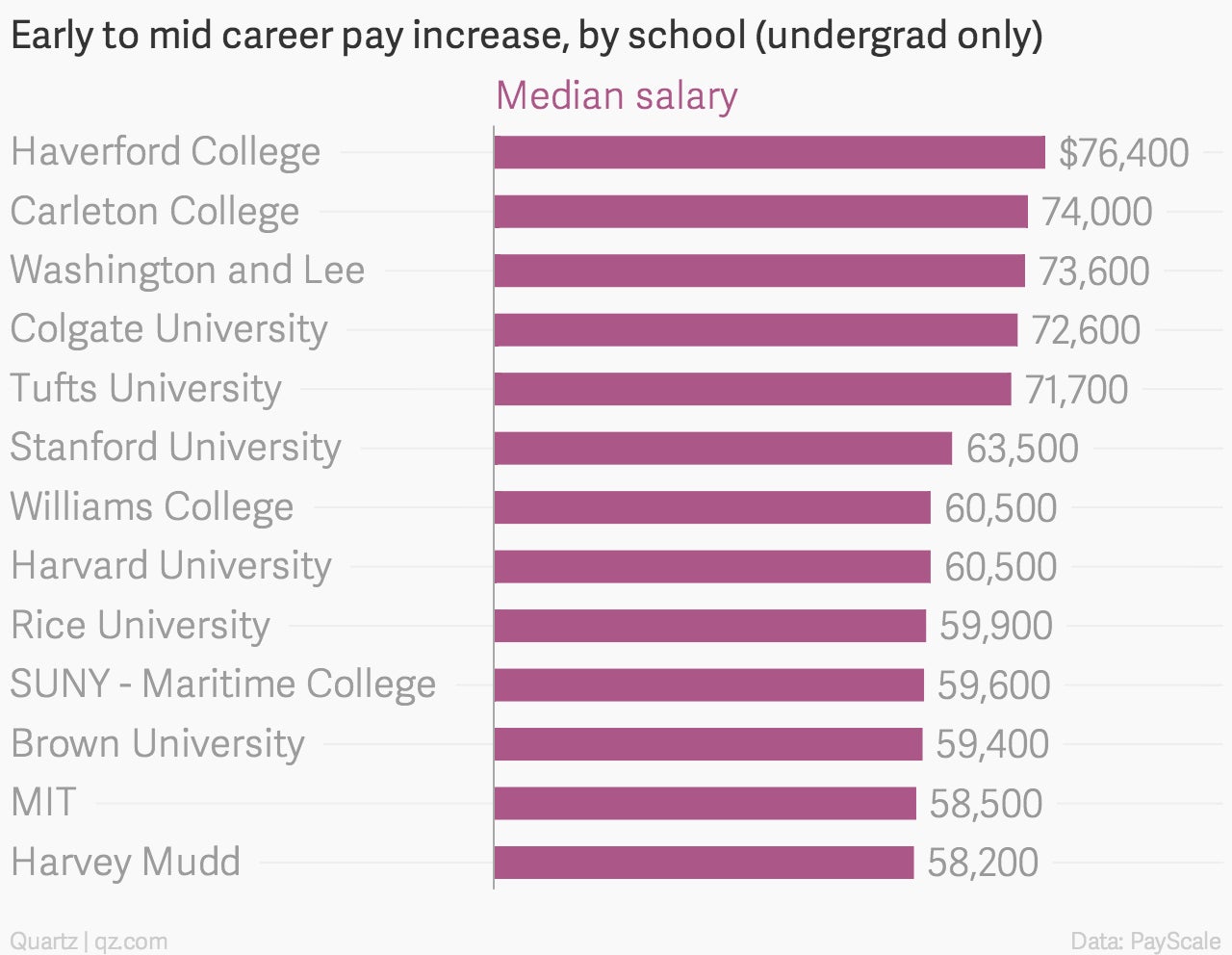The financial benefits of knowing what you want to do before college
Given the current job environment, it’s unsurprising that schools with a narrow focus on technology or engineering produce the highest-paid graduates. According to new data from career and salary data site PayScale, which lists median salaries for graduates of thousands of US schools, picking an institution that specializes in what you want to do or study has its benefits.


Given the current job environment, it’s unsurprising that schools with a narrow focus on technology or engineering produce the highest-paid graduates. According to new data from career and salary data site PayScale, which lists median salaries for graduates of thousands of US schools, picking an institution that specializes in what you want to do or study has its benefits.
The list of schools where a bachelor degree pays off the quickest includes a high concentration of technology focused, or otherwise narrowly specialized schools. Many are elite institutions, but the benefits aren’t limited to them.
Some of the highest salaries go to graduates of schools like Montana Tech, OHSU (Oregon Health and Science University), or the Colorado School of Mines. These aren’t especially prestigious places, but they emphasize practical skills in fields where such expertise is in high demand. And their students have a strong track record of working in their fields of study—one generally doesn’t attend the Colorado School of Mines without the intention of pursuing an engineering career.
The elite military academies also are heavily represented. But they get a boost from the way the data’s calculated–it doesn’t include salaries for active service members. So the graduates who are counted are the ones in the civilian labor force. They generally would have entered these jobs having had post-graduate experience as a military officer, something most folks just entering the workforce can’t quite match.
Here are median salaries for former students up to five years into their careers:

Many of these schools are among the favorite recruiting grounds of high-paying companies like Google and Facebook. Plenty of these schools’ graduates study less technical fields or end up in non-technical professions. But they’re less likely to do so.
A similar set of schools dominates for graduates a bit further removed from their alma maters. There are a few less-focused schools in the mix, including the arguably increasingly tech centric Stanford, but when looking at salaries of former students 10 years or more into their careers, narrowly focused schools like SUNY’s Maritime College and the Stevens Institute of Technology still take up a large portion of the top slots:

When you include those who went on to get a graduate degree at their alma mater or another institution, technical schools still crowd the top of the rankings for professionals early in their careers. Yale only cracks the top 10 after its graduates have been in the labor force for at least a decade, and is still behind schools like SUNY Maritime and Cooper Union.
It’s not all dire for the bright-but-undecided. When schools are ranked by the amount that median salary increases from early to mid career, the professional and technically oriented schools aren’t quite as dominant:

But whether it’s a function of having an easier time finding a job, progressing more rapidly in a career, or deliberately selecting into high paying careers, there seems to be an advantage to having one-track mind.